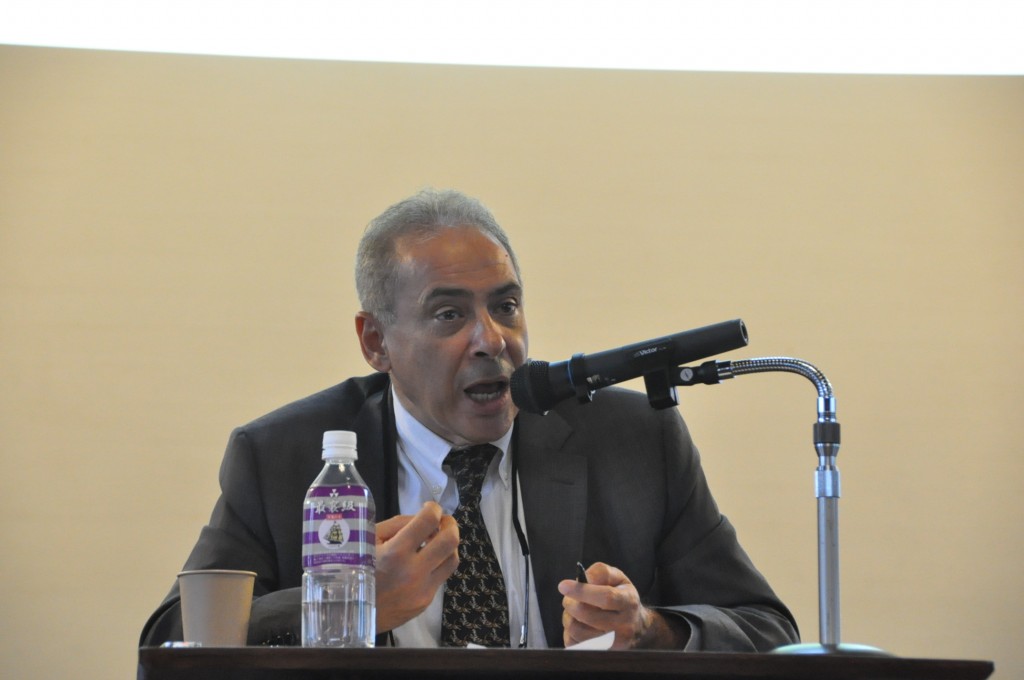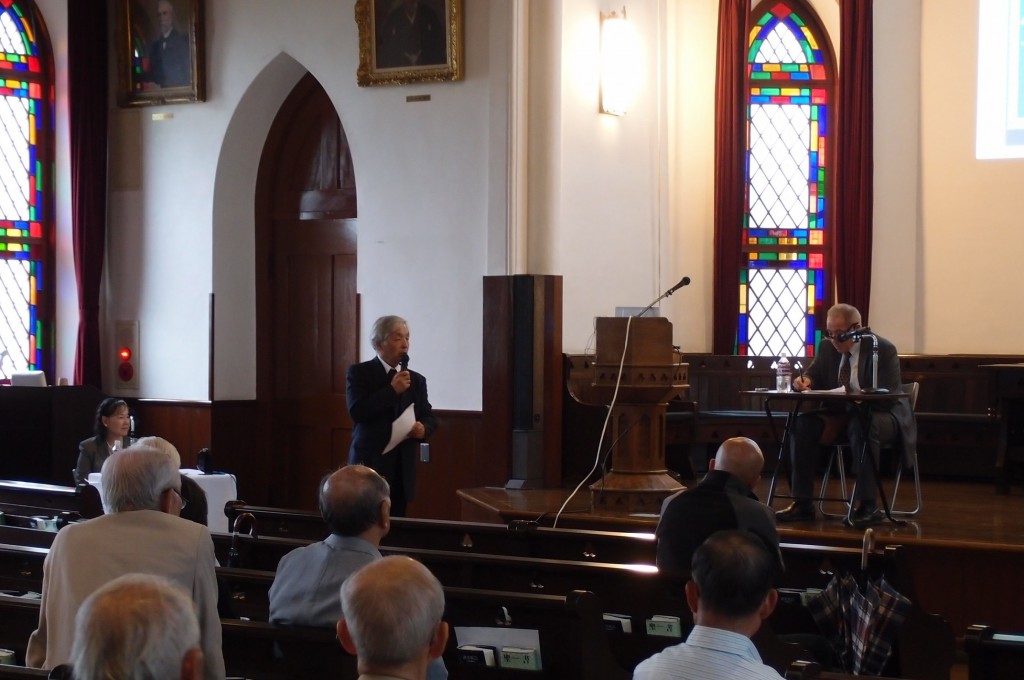Center for Interdisciplinary Study of Monotheistic Religions(CISMOR)Doshisha University
> Public Lectures > Governance of Religious Institutions in the Middle East: The role of InnovationPublic Lectures
Governance of Religious Institutions in the Middle East: The role of Innovation
| Date: |
2015/09/24 13:00-14:30 |
|---|---|
| Place: | Doshsiha Chapel, Imadegawa Campus, Doshisha University |
| Lecture: |
Tarek A. Hatem (Professsor, Management Department , The American University in Cairo) |
| Summary: | |
|
Dr. Hatem began by noting that the word “Islam” is derived from the word salam, which means “peace”; Islam preaches peace between nations and peoples. One of its tenets is that people should understand each other, and exchange views in a peaceful and respectful way. Recent wars and terrorism are incompatible with the essence of Islam and the tenets of the Qur’an. Additionally, Islam was not created by the Prophet Mohammed but by God, and was sent to all people. This idea of submitting to God through His messengers existed long before Mohamed. In each era, Prophets have faithfully carried out their roles, however, people have not been able to maintain these tenets and have conflicting ideas and beliefs that contradict the teachings of God. The primary reason for this deviation is the results of people and institutions’ governance, as well as how various institutions are managed. The tendency spreading among Muslims is to reject secularization and religious reform stemming from the Qur’an, and the Hadith view of Islam as a provider of clear guidelines to societies and its institutions regarding how to function and develop efficiently. Interpretations of the Qur’an, which was directly taught by the Prophet, were transmitted orally following His death, and these oral transmissions resulted in the Hadith, which are a source of Islamic Law after the Qur’an, and are an important tool for understanding the Qur’an and its commentaries. However, as time as passed, many Muslims and scholars have come to rely on the Hadith as the basis of interpretations and guidelines, without referring to the Qur’an. As a result, stark differences in interpretation and conflicting guidelines have arisen that influence society and various institutions. A serious and immediate effort is required to authenticate the Hadith by removing elements that do not match the Qur’an. Islam does not require an intermediary for humans to connect with God, and does not have clergy or religious authorities. While the Qur’an offers detailed guidelines regarding all aspects of daily life, in Muslim countries, many religious authorities and groups are attempting to regulate society based on their own interpretations. Religious scholars and institutions were created for the purposes of teaching and guiding the weak in society. This role then expanded from doctrinal prescriptions to community leadership and issuing fatwas. Throughout history, human religious institutions have been unable to avoid dominance by political institutions, and religious authorities have sought out political authorities to legitimize themselves. This cooperative relationship between political and religious institutions has created disorder in society, along with poor institutional performance and governance. The governance of Islamic institutions must be reformed. At the basis of a new approach for the management of religious institutions, intellectuals and religious scholars must be involved, and a new understanding of the Qur’an must be created, as it applies to the present day. The Muslim world must unite to reform existing religious authorities and to establish a centralized accepted independent authority with the goal of unifying interpretations of the Qur’an. This authority should be formed by scholars from various fields, combining their knowledge regarding religion to the natural and social sciences. Religious institutions and their staff must be honestly assessed in a non-biased way to determine whether they possess the appropriate knowledge of Islam. This capacity building should be a continuous, long-term process of development that includes all stakeholders. Furthermore, the efforts of individuals, institutions, and society are indispensable. Religions exist to regulate and improve the quality of our lives as a community and individuals. Our interpretations of religious tenets to implement the governance of religious institutions should be criticized instead of the religion. Tomoki Asaka Postdoctral Fellow, CISMOR |
|
|
*Admission Free, No Reservation Necessary. *Lecture in English, Interpretation will be provided. |
|

